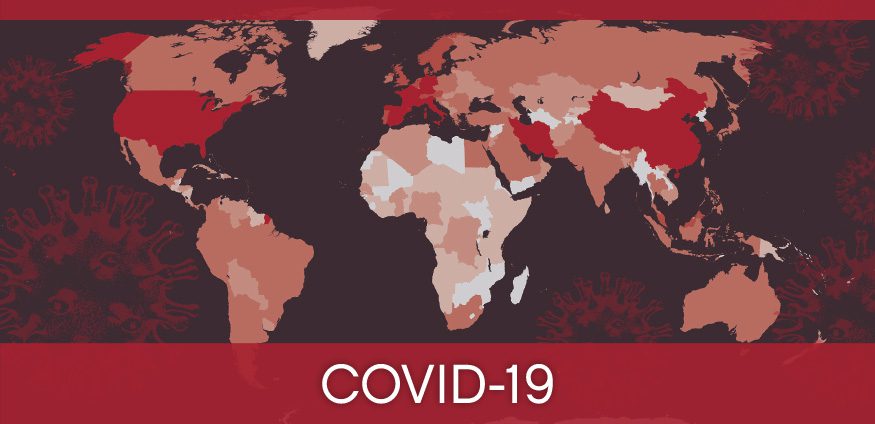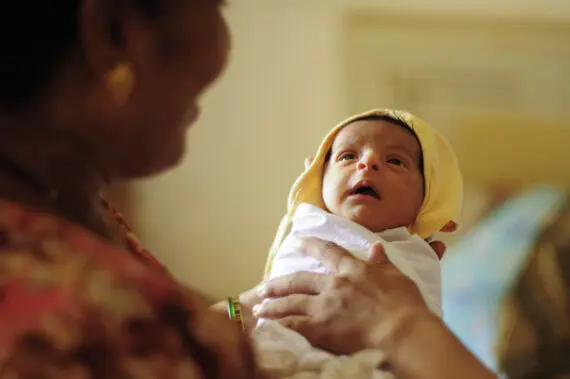Editor’s note: This is the first in a three-part blog series on race, hunger, and the novel coronavirus (COVID-19). The pieces will focus on the impact of COVID-19 in the African American, Indigenous, and Latino communities, respectively.
By Marlysa D. Gamblin
“Does my life really matter? Coming to work means risking my own health. They don’t care about us. Our lives don’t matter to them.” I overheard the conversation of three African American women in staff uniforms as I walked down the aisle of a Dollar Tree.
As an African American woman myself, I wanted so badly to turn around and say, “Yes. Your life does matter.” But while the life of each person has value, I couldn’t assure the three workers that our country’s public policies and practices send that message consistently.
Bread for the World Institute emphasizes the importance of applying a racial equity lens to efforts to end hunger and reach other goals, which now include responding to the most recent global challenge, the COVID-19 pandemic.
The many persistent disparities between African Americans and white Americans—health, income, and wealth, among others—are what lead advocates to believe that African Americans are likely to be at higher risk from COVID-19. An effective response to the pandemic that, at a bare minimum, does not exacerbate existing inequities will require applying a racial equity lens to all COVID-19 responses, in order to compensate for the strikingly inequitable realities that African American communities face.
Many factors make African Americans more vulnerable to the virus. First, African Americans have more health problems than whites, including higher rates of heart disease, high blood pressure, diabetes, and other chronic illnesses, which increases the likelihood of contracting and dying from the virus. This, coupled with the racism that African Americans face in the healthcare system that often leads to under-diagnosis and under-treatment, increases the likelihood that African Americans who contract the virus will become severely ill.
This is one of the reasons that it is problematic that African Americans face additional risk because they disproportionately work in jobs that require their physical presence, exposing them to the virus at higher rates than those who can isolate themselves at home. African Americans are disproportionately represented in the country’s 10 lowest-paying jobs, jobs that entail contact with many people, such as being a cashier or home health aide.
To make matters worse, racially inequitable policies that created racial housing segregation have meant that low-income African Americans are three times as likely to live in an area of concentrated poverty as low-income whites. Such neighborhoods have poverty rates of 20 percent, 30 percent, 40 percent, or more and lead to crowded conditions that make it difficult or impossible to maintain the recommended social distance during the COVID-19 pandemic. Areas of concentrated poverty are also more likely to have high levels of air pollution. People with asthma and other lung problems are more susceptible to a respiratory illness such as COVID-19. Finally, public transit is another environment conducive to acquiring COVID-19 since it is frequently crowded. Yet it is often the only option for African Americans living in areas of concentrated poverty to get to work and a full-service grocery store to buy nutritious food for their families. This suggests that social distancing is more of a privilege than something everyone is able to do to protect their health.
In both good and bad economies, the African American unemployment rate is significantly higher than that of whites. Analysts expect that COVID-19 will cause an economic recession, potentially quite severe, that is highly likely to affect African Americans more severely. The racial wealth divide between whites and African Americans means that many African American families have little or no financial cushion in difficult economic times such as the COVID-19 era. Those who contract the virus will have higher healthcare costs. They are less likely to have paid sick leave and therefore more likely to lose income. They could lose their jobs if they are unable to work for even a couple of days. This will worsen food insecurity and other problems.
Groups such as the Joint Center for Political and Economic Studies have already convened African American leaders to identify policies in response to COVID-19 that promote racial equity and center the needs of African American communities. Ending global hunger calls for everyone—the entire world population—to prioritize racial equity in their responses to the pandemic.
Marlysa D. Gamblin is a senior domestic policy advisor at Bread for the World Institute.



